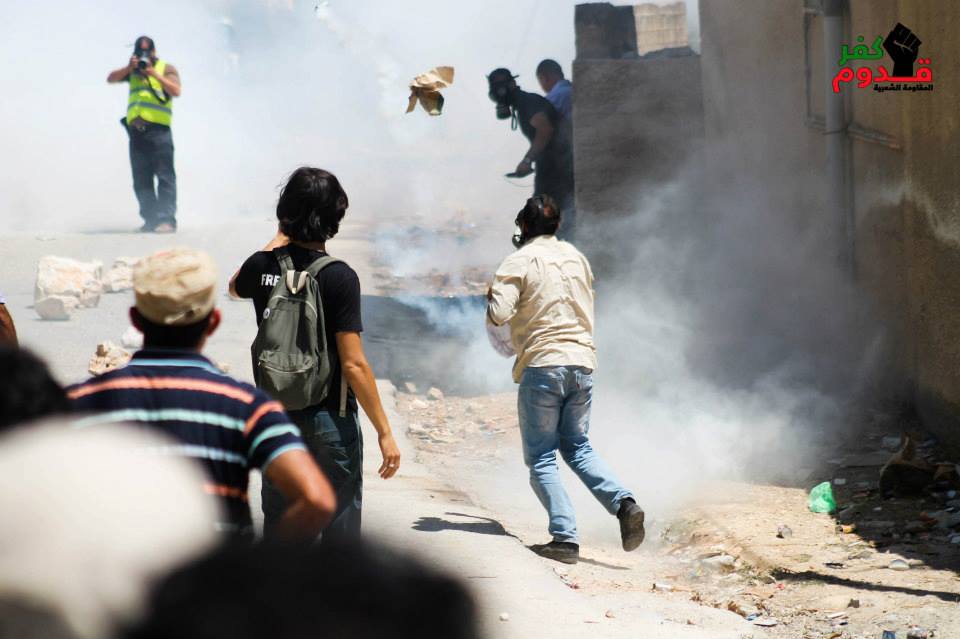Tag: Kafr Qaddum
-
Women of Kafr Qaddum: Steadfastness and determination
12th August 2013 | International Solidarity Movement, Nablus Team | Kafr Qaddum, Occupied Palestine In June 2013, a photo depicting Suriah Mahmood from Kafr Qaddum won first prize in a photography compitition in Qatar. International activists met Suriah to talk to her about non violent Palestinian resistance and the village of Kafr Qaddum. The people…
-
Welcome to Palestine: tear gas and coffee
10th August 2013 | International Solidarity Movement, Anna, Nablus Team | Kafr Qaddum, Occupied Palestine I came to Palestine last Tuesday and joined the weekly protest held on Friday the 8th of August in Kafr Qaddum. The demonstration represented non-violent resistance against the land grab and for the freedom of movement in the village. Kafr…
-
Resistance in Kafr Qaddum met with military violence and collective punishment
26th July 2013 | International Solidarity Movement, Nablus Team | Kafr Qaddum, Occupied Palestine The Israeli military invaded the village of Kafr Qaddum multiple times on Friday 26th July, firing excessive teargas, sound grenades and rubber bullets at the people of the village. They were also armed and prepared to use live ammunition against peaceful…

